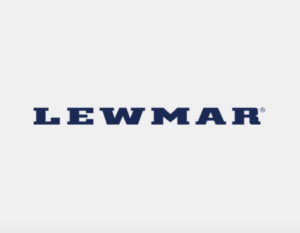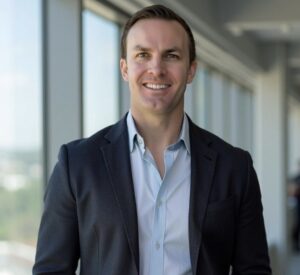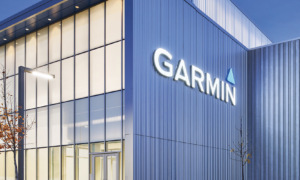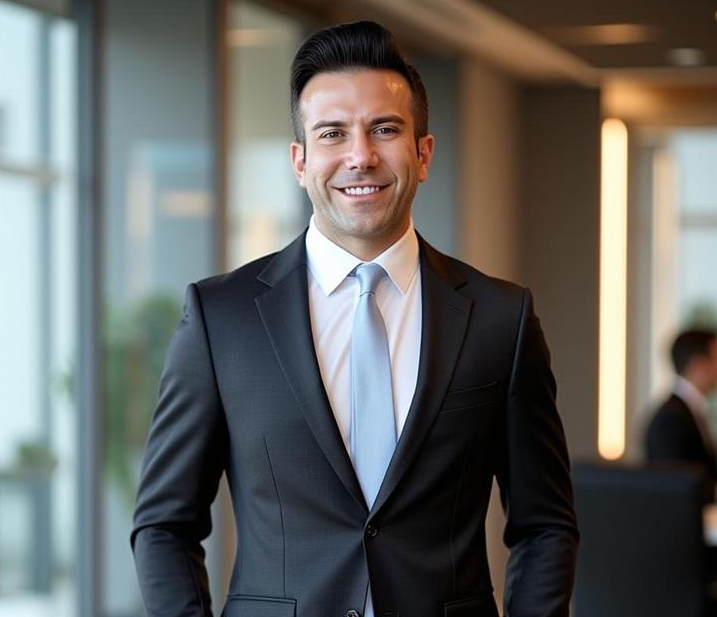
Marine engines are increasingly sophisticated, meaning technicians are required to understand more integrated and advanced systems than in the past. A shortage of workers with those skills has propulsion manufacturers investing heavily to cultivate tomorrow’s workforce.
The Marine Retailers Association of the Americas estimates that about 31,000 jobs will be unfilled at dealerships this year, and that more than 85 percent of all open service department positions are for service technicians. The shortage has led to service backlogs. A survey that Soundings Trade Only conducted last summer in conjunction with Baird and the MRAA showed that 90 percent of dealers had a service backlog, and 13 percent said it was longer than two months.
One of the biggest challenges of this growing problem is that many schools can’t afford the newest technology. So even if students are enrolling with the hopes of becoming marine service technicians, they graduate without the requisite skills. “We were finding that the schools had old 2-stroke engines for the kids to work on, products that hadn’t been in production in 20 years,” says Joe Maniscalco, who heads the service division for Yamaha’s marine businesses. “The course book they were working on was last published in 1984. The need to create a curriculum, and current, market-relevant information and structure was at the top of our list.”
Engine manufacturers are trying not only to find ways to attract and retain workers, but also to get more current engines in students’ hands — and some are investing millions of dollars.
100 Donated Engines
Evinrude’s announcement that it was donating 100 E-TEC G2 3.4-liter V-6 outboards to the American Boat and Yacht Council Foundation was a game-changer, says ABYC president John Adey. The engines will support students in high schools and colleges across the United States and Canada, and the National Marine Distributors Association will provide funds for schools to purchase related materials and to transport the engines.
“Never has that much been donated for educational efforts,” Adey says. “While ABYC’s curriculum is general in nature, the addition of manufacturer-specific training enhances the value of the student to potential employers.”The donation includes access to Evinrude’s training curriculum. Completing the program will give students the option to transition to the certification-level course at Evinrude’s technical training centers. Evinrude also will make highly discounted outboard test tanks and educational service tool packages available to schools.
“Recreational boats are becoming increasingly more integrated, which requires technicians to be well-versed in many advanced systems,” says Evinrude senior vice president and general manager Tracy Crocker.

Apprenticeships and Training
Yamaha began focusing on creating apprenticeship programs when Maniscalco saw how out of date schools’ technology and curricula were. “We felt that we at Yamaha were responsible for changing that,” he says. “It’s been a lot harder than I thought. It’s a huge path.”
In 2016, Yamaha created an apprenticeship program that met the U.S. Department of Labor’s requirements. The federal government registered the program in 2017. “With that, we had a book that outlined how to define a Yamaha apprentice,” Maniscalco says. “We worked with dealers and quickly realized just having an outline or structure in a document wasn’t a viable approach. What they needed was an online program with a tracking aspect — videos, educational resources and training materials.”
Yamaha partnered with Chronus to develop an online platform for the marine program structure. Currently, Yamaha has seven dealerships and nine apprentices working through the program. The apprenticeship program is a critical part of training because students, even those with marine-specific training from a technical school, are still students when they enter the workforce, Maniscalco says.
“The dealership is responsible for training and molding that student to where he needs to be,” Maniscalco says. “That’s where the Yamaha apprenticeship program comes in, developing them into the productive person the dealer needs them to be. Schools are only successful if the dealer is willing to take that student to the next level. Yamaha is helping to support these dealers.”
Dealer Buy-in
The program began as an online platform, but schools wanted the ability to chop it up and teach portions. Yamaha moved it into a PowerPoint presentation and created student and instructor course books. “We charge $89 for the student book and $99 for the instructor guide, but all certification tests and support materials to our school is free of charge, and partnerships are done free of charge,” Maniscalco says.
Yamaha also created a system to connect with potential marine technicians, at YMUtechs.com. People who aren’t associated with a dealership have access to a careers section. Those who are with a dealership, or who are students in a partner school, have free access to videos, training materials, service manuals and parts lookups.
“Students can build a resume in there, they can find jobs, and dealers can recruit right from the tech hub,” Maniscalco says. “We then can monitor the progression of a person. If it’s a student at a partner school, they get full access, and we can help support their path into a dealership and their growth at that dealership through the apprenticeship program — and watch them increase their training levels all the way up to master technician.”
The whole program depends on a coordinated effort at the manufacturer and retail levels. “We can find people with aptitude and desire to become Yamaha marine professionals, but if we don’t have the drive to bring that person to a professional level, we will fail every time,” Maniscalco says.

Internal Programs
Mercury Marine has an apprenticeship program that offers a variety of skilled trade opportunities, says spokesman Lee Gordon. The company has tripled its number of apprentices since 2014, bringing the number to 30.
“We are trying to groom the next generation of manufacturers through our apprenticeship program and our commitment to our STEM school in Fond du Lac,” Gordon says of the firm’s Wisconsin location. “The school has grown each year, and we are making manufacturing cool. With all the new expansions and investments, opportunities to have a career in manufacturing are better than they ever have been.”
Mercury also is committed to hiring veterans and has grown its veterans program internally. Veterans at Mercury hold internal events and recruit fellow vets, Gordon says. “We are one of the only manufacturers in the state to offer an interview to any veteran who applies for a job,” he says.
Company Culture
The marine industry has a competitive advantage if it’s able to showcase its fun factor, says Ron Huibers, president of Volvo Penta of the Americas. “Last year we had a record number of technicians trained, over 1,200, in face-to-face courses,” Huibers says. “We did over 15,000 e-learning courses. We’re trying to make technicians’ lives easier.”
Volvo Penta works with a variety of tech schools and universities, including the Mid-Atlantic Maritime Academy, to help cultivate technicians. “Volvo pays for and subsidizes training,” says human resources vice president Valerie Harriell. “Examples would include getting a captain’s license or earning an MBA.”
The company runs a paid internship program internally, starting young people out with challenging jobs that would be done by full-time employees, Harriell says. “One year, we had an intern whose job was social media, and she earned us 1,200 followers,” she says. “So it’s not like they’re at the machine making copies.”
This year, Volvo Penta plans to bring on 15 interns; one is assigned to each department every year, and engineering gets two or three, Harriell says.“Certainly, the toughest roles we’ve had to fill are technical and service roles,” Huibers says. “We are hearing from dealers that these are still challenging jobs to fill. What we have to do is continue to give them better tools to do jobs in improved working conditions, offer things like flex time and support their ability to make decisions.”
Volvo Penta supports apprentice schools with engines and technology. “We have someone working with schools who reaches across our dealer network to help train the trainers,” Huibers says. “That’s part of the strategy, to train trainers across the continent — to help dealers with training so they can bring on apprentices.
“We’re just one small segment of the industry,” he adds, “but we are trying to make this an attractive place to work and stay.”
This article originally appeared in the March 2019 issue.











